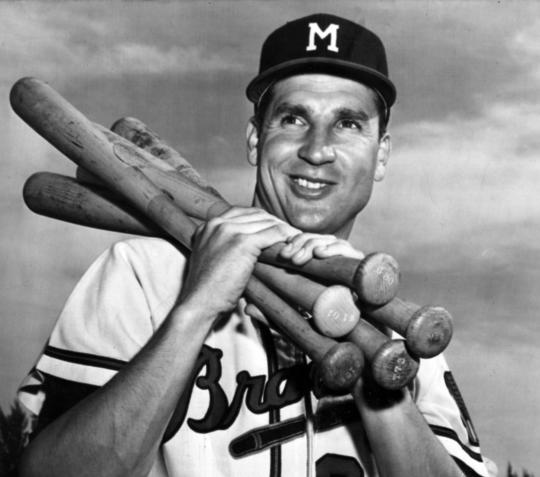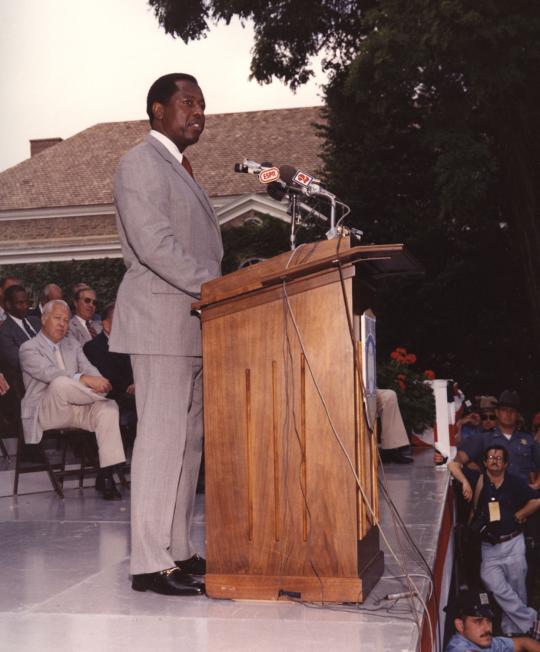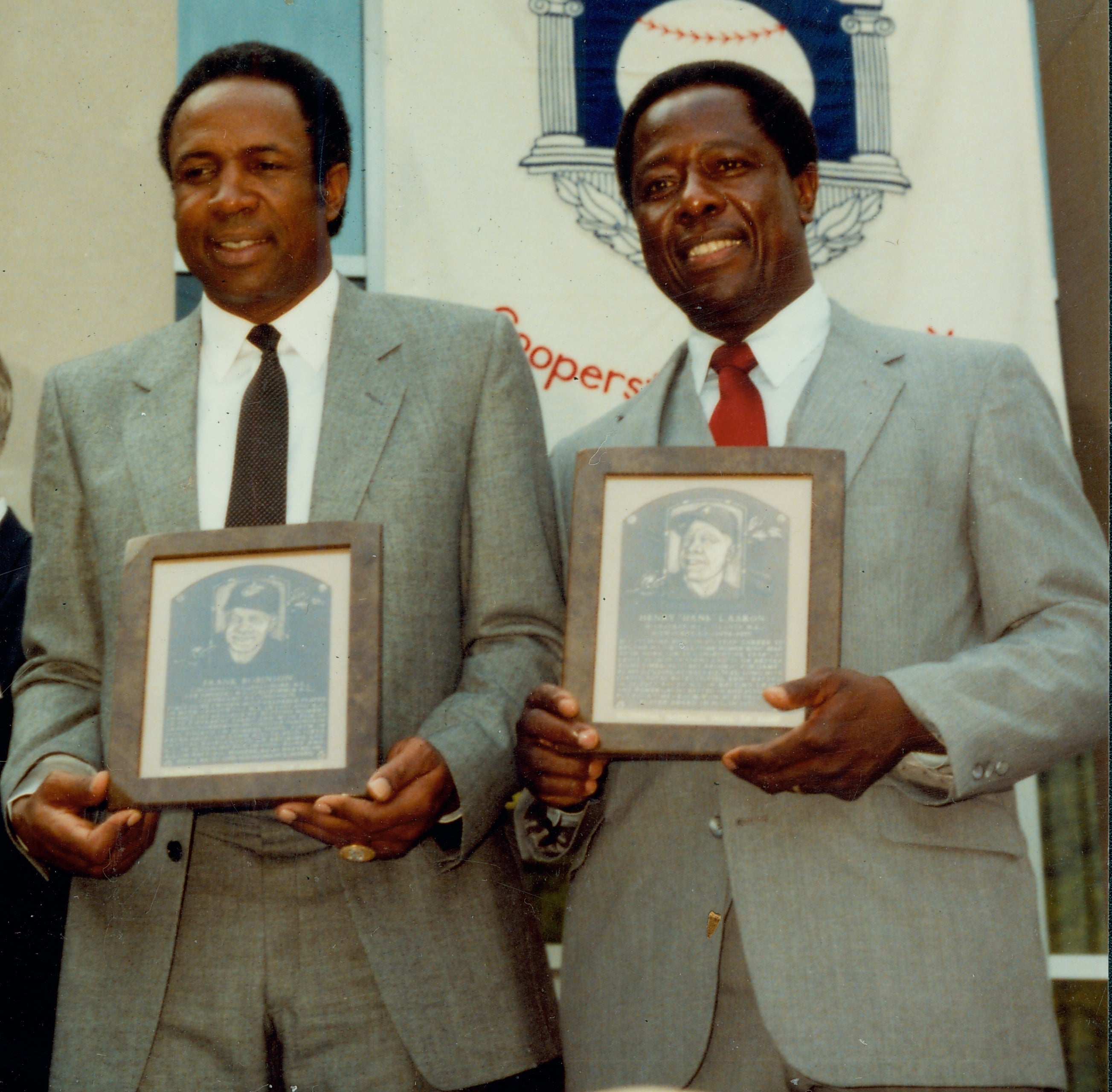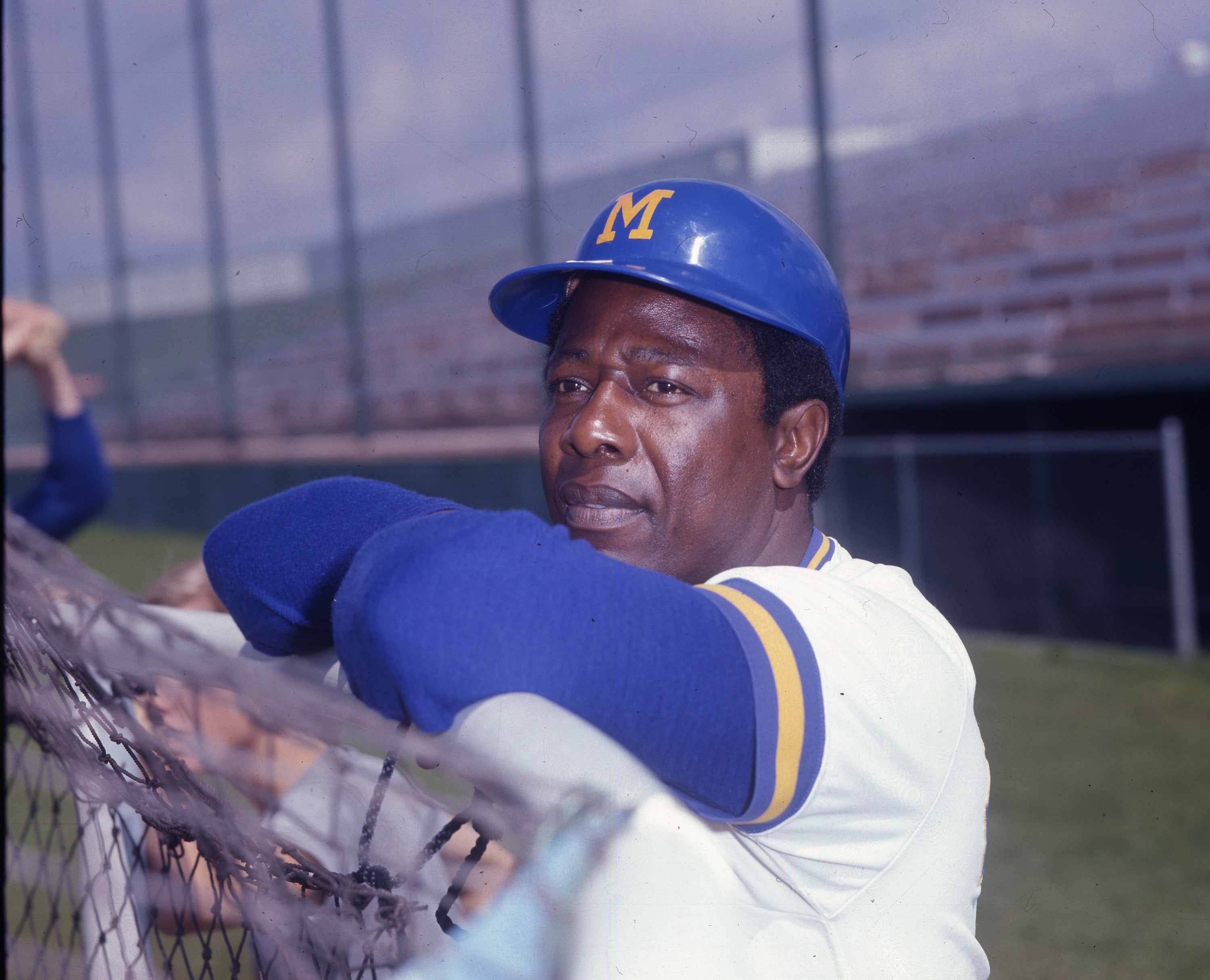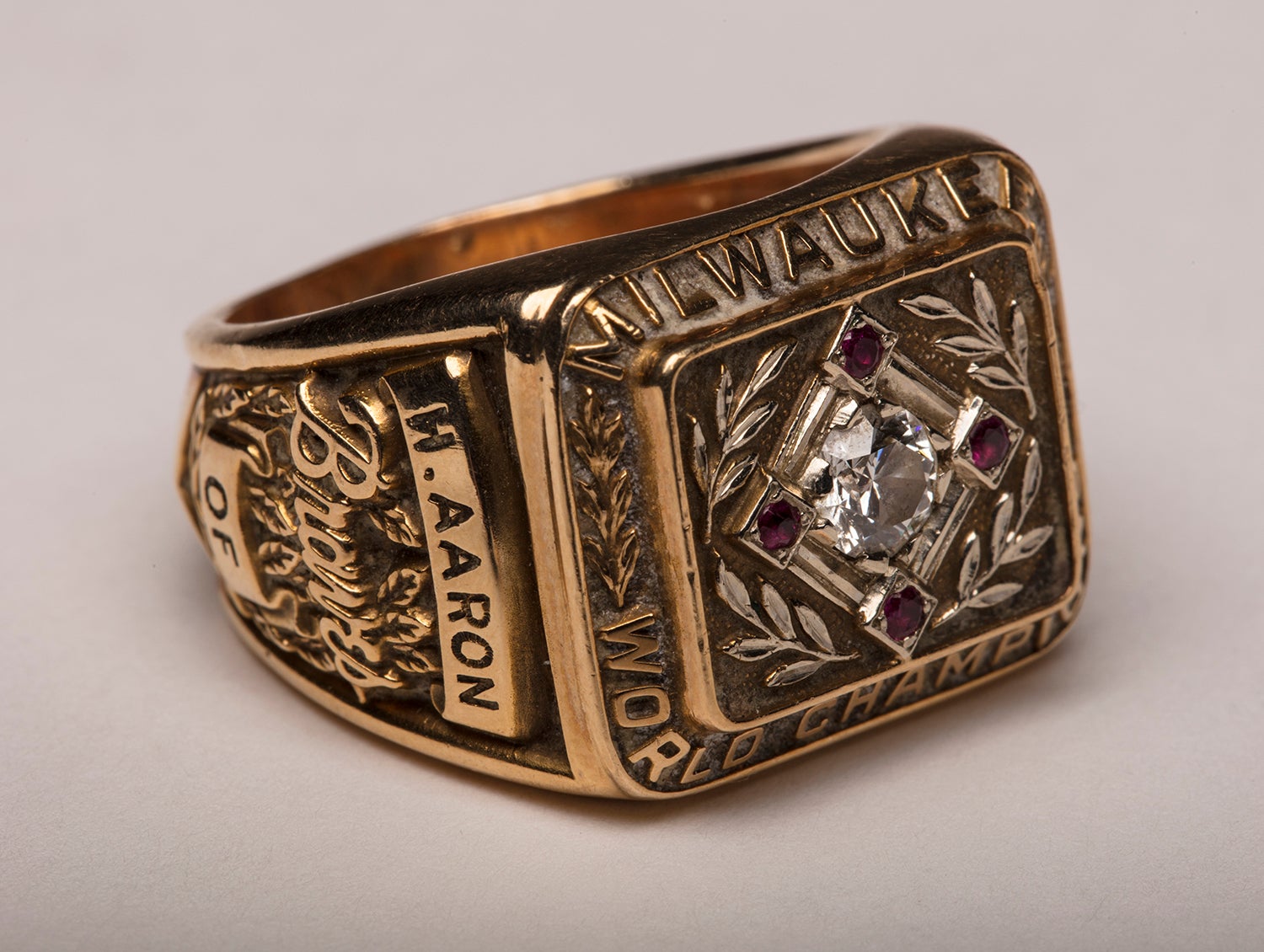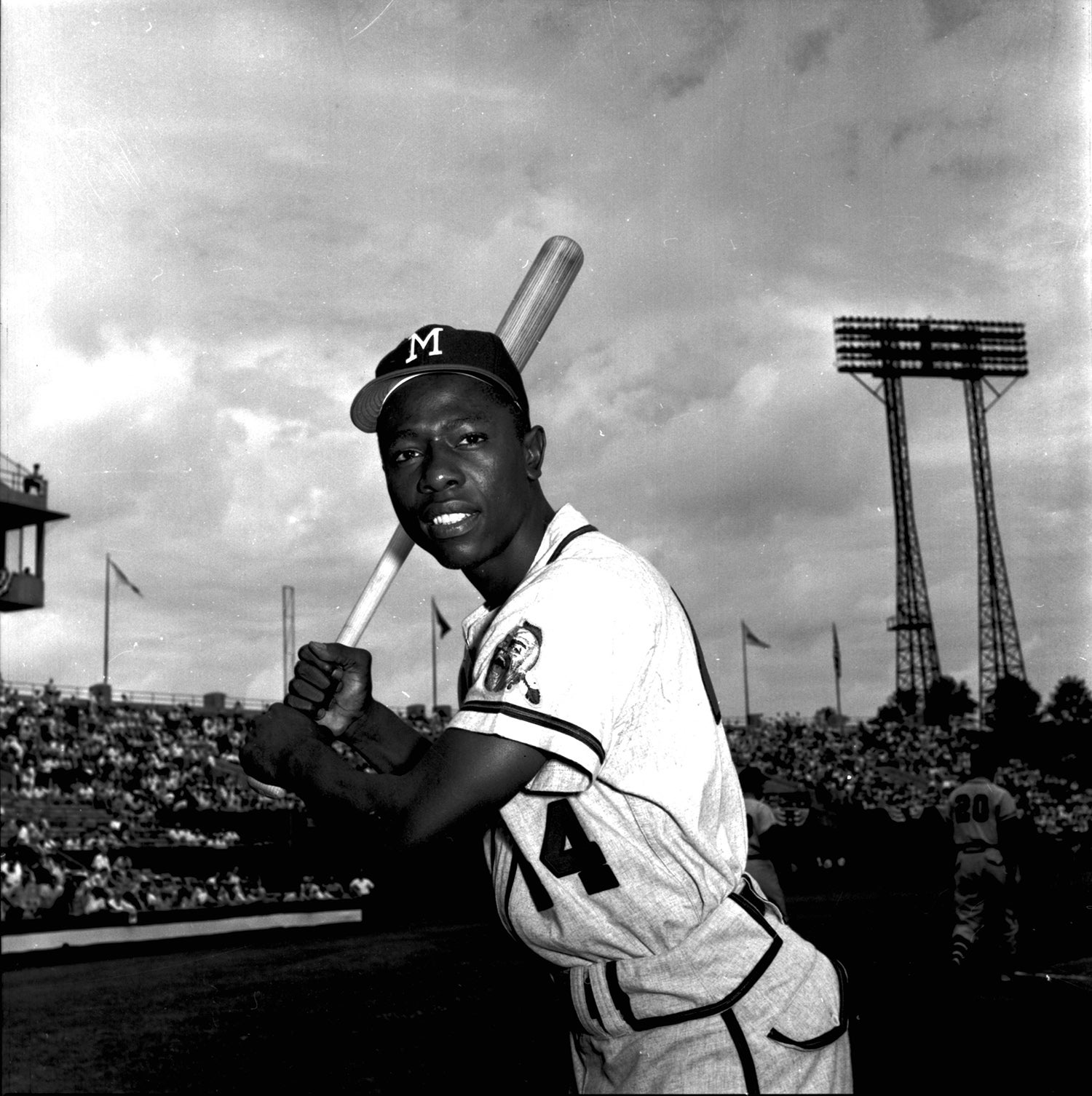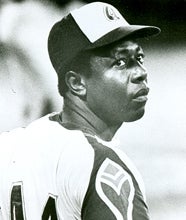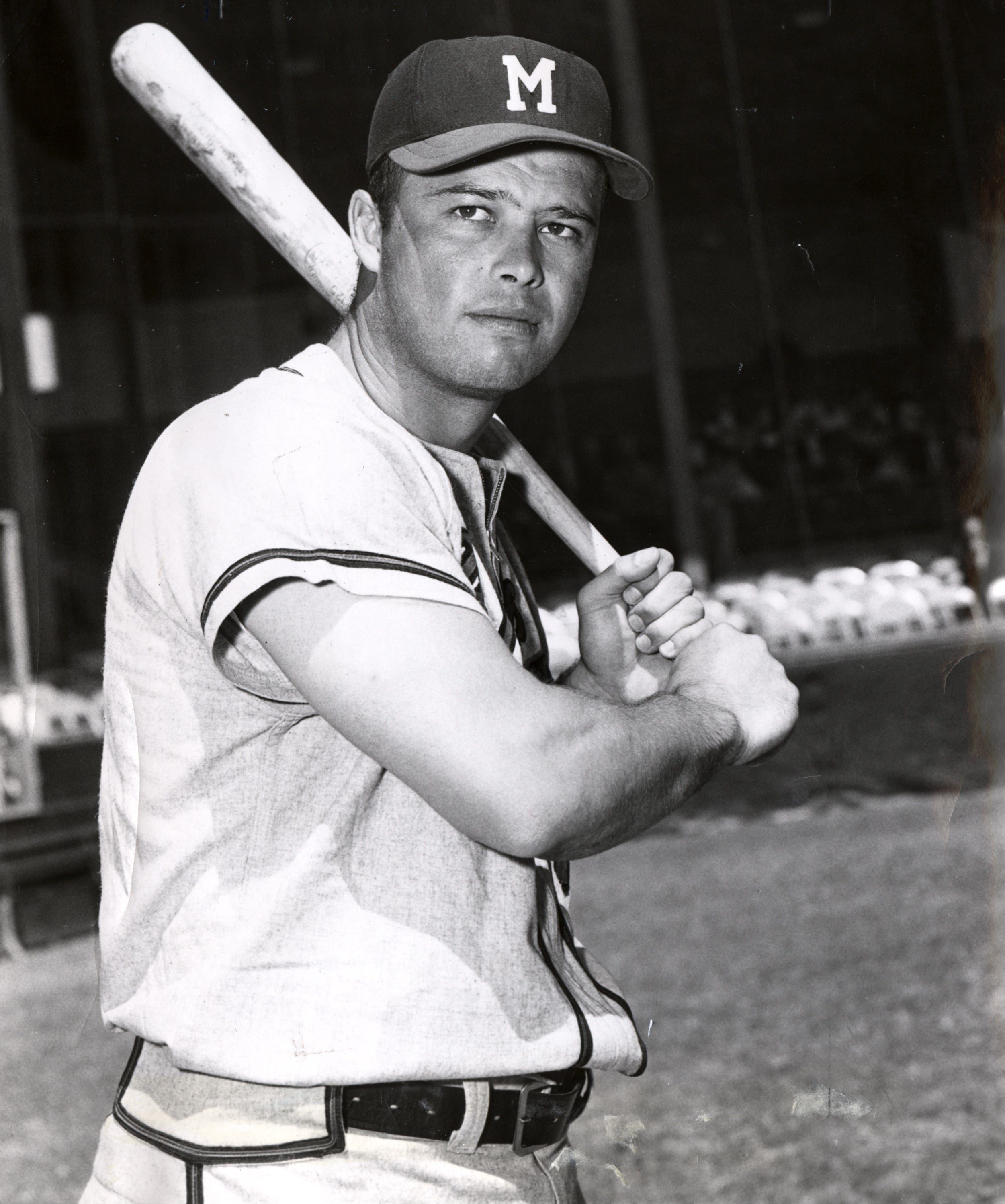- Home
- Our Stories
- Thomson’s broken ankle brings Aaron to big leagues
Thomson’s broken ankle brings Aaron to big leagues
On March 13, 1954, Milwaukee Braves outfielder Bobby Thomson broke his ankle during a Spring Training game while sliding into second base. Taking his spot in the lineup was the 20-year-old rookie from Mobile, Ala.: Henry Aaron.
The rest is history.
Thomson, known for his famous “Shot Heard ‘Round the World” which clinched the 1951 National League pennant for the Giants, was traded from New York to Milwaukee after the 1953 season. In the eighth inning of his first spring training game with Braves, Thompson got his cleats caught in the lose turf while trying to break up a double play versus the Yankees.
“I started my slide too late.” Thomson said at the hospital. “It was terrible luck. Charlie Grimm (manager of the Braves) had told me he was going to take me out the next inning.”
After starring for the Giants from 1947-53, Bobby Thomson was traded to the Braves prior to the 1954 season and was penciled in as Milwaukee's left fielder. But Thomson broke his ankle in Spring Training of 1954, opening the door for Henry Aaron to make his big league debut. (National Baseball Hall of Fame and Museum)
Share this image:
Hall of Fame Membership
There is no simpler, and more essential, way to demonstrate your support than to sign on as a Museum Member.
Thomson didn’t see the field again until July 14, hitting just .232 with two home runs in 99 plate appearances the rest of the season.
The next day, Aaron got the start in left field going 2-for-4 with a home run. A standout prospect in the Negro and Minor Leagues, the Braves thought Aaron needed more time in the minors before bringing him up. In 1953, Aaron won the South Atlantic League MVP with Jacksonville – leading the league in runs, hits, doubles, RBI and batting average at .362 a clip.
On April 13, 1954, Aaron made his MLB debut, going hitless against Cincinnati. However, one of his many records would begin on this day. Eddie Mathews hit two home runs in the game, paving the way to an eventual record of 863 for the teammates.
Two days later, Aaron recorded his first hit off Cardinals pitcher Vic Raschi.
On April 23, it was Raschi again who served up Aaron’s first of 755 career home runs.
In Aaron’s first season, he hit .280 with 69 RBI and 13 home runs in 122 games – good for fourth in the NL Rookie of the Year voting. Aaron’s season ended early though, as he fractured his own ankle on Sept. 5.
On May 17, 1970, Aaron recorded his 3,000 hit – becoming the first player to register 3,000 hits and 500 home runs in a career. The 25-time All-Star wouldn’t stop there, as the “Hammer” finished his career with 3,771 hits to go along with 2,297 RBI, four NL home run titles, two NL batting titles and a .305 average.
The 1957 NL MVP and World Series champion still holds MLB records for total bases, RBI, extra-base hits, and 17 consecutive seasons with 150 or more hits.
The last Negro Leagues player to be on a Major League roster, Aaron was inducted into the Baseball Hall of Fame in 1982 – receiving 97.83 percent of the vote the first time on the ballot.
Nick Anapolis was a public relations intern at the National Baseball Hall of Fame and Museum

